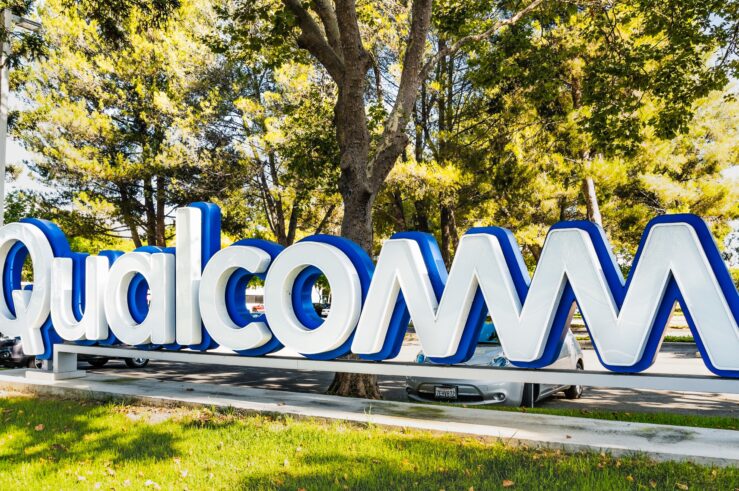Showing archive for: “SEPs”
Antitrustifying Contract: Thoughts on Epic Games v. Apple and Apple v. Qualcomm
In the hands of a wise philosopher-king, the Sherman Act’s hard-to-define prohibitions of “restraints of trade” and “monopolization” are tools that will operate inevitably to advance the public interest in competitive markets. In the hands of real-world litigators, regulators and judges, those same words can operate to advance competitors’ private interests in securing commercial advantages ... Antitrustifying Contract: Thoughts on Epic Games v. Apple and Apple v. Qualcomm
In the Fight Against Qualcomm, Apple’s Loss is Apple’s Gain
Apple’s legal team will be relieved that “you reap what you sow” is just a proverb. After a long-running antitrust battle against Qualcomm unsurprisingly ended in failure, Apple now faces antitrust accusations of its own (most notably from Epic Games). Somewhat paradoxically, this turn of events might cause Apple to see its previous defeat in ... In the Fight Against Qualcomm, Apple’s Loss is Apple’s Gain
The Deterioration of Appropriate Remedies in Patent Disputes
Property rights are a pillar of the free market. As Harold Demsetz famously argued, they spur specialization, investment and competition throughout the economy. And the same holds true for intellectual property rights (IPRs). However, despite the many social benefits that have been attributed to intellectual property protection, the past decades have witnessed the birth and ... The Deterioration of Appropriate Remedies in Patent Disputes
Debating the FTC v Qualcomm Amicus Brief, a Summary
Qualcomm is currently in the midst of a high-profile antitrust case against the FTC. At the heart of these proceedings lies Qualcomm’s so-called “No License, No Chips” (NLNC) policy, whereby it purportedly refuses to sell chips to OEMs that have not concluded a license agreement covering its underlying intellectual property. According to the FTC and ... Debating the FTC v Qualcomm Amicus Brief, a Summary
The Facts Show That No License/No Chips Was A Successful Policy, Not an Empty Threat – A Reply to Manne and Auer’s New Argument
In their original post, Manne and Auer argued that the antitrust argument against Qualcomm’s no license/no chips policy was based on bad economics and bad law. They now seem to have abandoned that argument and claim instead – contrary to the extensive factual findings of the district court – that, while Qualcomm threatened to cut off ... The Facts Show That No License/No Chips Was A Successful Policy, Not an Empty Threat – A Reply to Manne and Auer’s New Argument
Is FRAND Litigation a Credible Threat?: A reply to Mark Lemley, Douglas Melamed and Steven Salop
Last week, we posted a piece on TOTM, criticizing the amicus brief written by Mark Lemley, Douglas Melamed and Steven Salop in the ongoing Qualcomm litigation. The authors prepared a thoughtful response to our piece, which we published today on TOTM. In this post, we highlight the points where we agree with the amici (or ... Is FRAND Litigation a Credible Threat?: A reply to Mark Lemley, Douglas Melamed and Steven Salop
Manne and Auer’s Defense of Qualcomm’s Licensing Policy Is Deeply Flawed
Geoffrey Manne and Dirk Auer’s defense of Qualcomm’s no license/no chips policy is based on a fundamental misunderstanding of how that policy harms competition. The harm is straightforward in light of facts proven at trial. In a nutshell, OEMs must buy some chips from Qualcomm or else exit the handset business, even if they would ... Manne and Auer’s Defense of Qualcomm’s Licensing Policy Is Deeply Flawed
Exclusionary Pricing Without the Exclusion: Unpacking Qualcomm’s No License, No Chips Policy
Qualcomm is currently in the midst of a high-profile antitrust case against the FTC. At the heart of these proceedings lies Qualcomm’s so-called “No License, No Chips” (NLNC) policy, whereby it purportedly refuses to sell chips to OEMs that have not concluded a license agreement covering its underlying intellectual property. According to the FTC and ... Exclusionary Pricing Without the Exclusion: Unpacking Qualcomm’s No License, No Chips Policy
Why the FTC had to Abandon the Duty to Deal Argument Against Qualcomm
On November 22, the FTC filed its answering brief in the FTC v. Qualcomm litigation. As we’ve noted before, it has always seemed a little odd that the current FTC is so vigorously pursuing this case, given some of the precedents it might set and the Commission majority’s apparent views on such issues. But this ... Why the FTC had to Abandon the Duty to Deal Argument Against Qualcomm
The District Court’s FTC v. Qualcomm Decision Rests on Impermissible Inferences and Should Be Reversed
Last week the International Center for Law & Economics (ICLE) and twelve noted law and economics scholars filed an amicus brief in the Ninth Circuit in FTC v. Qualcomm, in support of appellant (Qualcomm) and urging reversal of the district court’s decision. The brief was authored by Geoffrey A. Manne, President & founder of ICLE, and ... The District Court’s FTC v. Qualcomm Decision Rests on Impermissible Inferences and Should Be Reversed
In FTC v. Qualcomm, Judge Koh Gets Lost in the Weeds
In his latest book, Tyler Cowen calls big business an “American anti-hero”. Cowen argues that the growing animosity towards successful technology firms is to a large extent unwarranted. After all, these companies have generated tremendous prosperity and jobs. Though it is less known to the public than its Silicon Valley counterparts, Qualcomm perfectly fits the ... In FTC v. Qualcomm, Judge Koh Gets Lost in the Weeds
Should Patent Hold-Out Concerns Trump Patent Hold-Up Misgivings?
Over the last few years competition authorities in the US and elsewhere have repeatedly warned about the risk of patent hold-up in the licensing of Standard Essential Patents (SEPs). Concerns about such risks were front and center in the recent FTC case against Qualcomm, where the Court ultimately concluded that Qualcomm had used a series ... Should Patent Hold-Out Concerns Trump Patent Hold-Up Misgivings?







